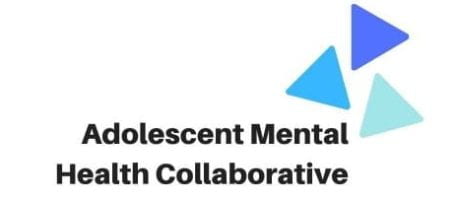TREATMENT STUDIES
LINC: Liaison Intervention for Navigating Care: A Treatment Engagement Study for Psychiatrically Hospitalized Adolescents at Clinical High Risk for Psychosis (PI: Thompson; Mentors: Spirito and Guadiano).
This study is exploring the development and feasibility of a brief family-oriented intervention for hospitalized adolescents with psychosis-spectrum symptoms, to promote treatment engagement and service use after discharge.
STEP: Skills to Enhance Positivity in Adolescents at Risk for Suicide (PI: Dr. Wolff)
The purpose of this study is to examine the effectiveness of the Skills to Enhance Positivity (STEP) intervention in reducing suicidal behaviors in adolescents. Participants are being actively recruited from Bradley Hospital, Butler Hospital, and Boston Children’s Hospital. Parents are also invited to participate, though the parent can decline with no effect on their child’s enrollment in the study. This study is comparing two forms of treatment: enhanced treatment as usual where the participant receives 60 days of text messages encouraging review of safety plan and a 4-session positive psychology-based intervention. Participants complete initial interviews, questionnaires, and a computer task. At discharge, all participants will receive text messages daily for the first month and every other day for the following two-months. Follow-up assessments will also be conducted.
ASSESSMENT STUDIES
Parenting and Social Media Use (PI: Nesi, Mentor: Wolff).
This study aims to understand the effectiveness of parenting strategies in managing teens’ social media use, using ecological momentary assessment (EMA), questionnaires, and observations of parent-child interactions.
Patient Perspectives of Adolescent Inpatient Psychiatric Hospitalization and Transition to Home. (PI: Dr. Wolff)
The purpose of this study is to understand how inpatient hospitalization affects treatment outcomes for teens with mental health concerns after discharge and to learn more about patients’ transition home after discharge. The study is recruiting teens 12-17 years old from the Bradley Hospital AIU. Parents are also invited to participate, though the parent can decline with no effect on their child’s enrollment in the study. The study consists of completing surveys while inpatient or shortly after discharge and 1-month post-discharge, daily phone surveys for teens, and a qualitative interview for parents.
SMHS: Social Media and Health Study (PI: Nesi; Mentor: Spirito).
This study examines how and for whom social media use increases risk for suicidality among adolescents, using experimental eye-tracking methods and machine learning analyses of social media data.
Social Media Utilization and Sleep Pilot (PI: Dr Kudinova)
This study focuses on teens’ use of social media and its implications for mental health symptoms and sleep regulation. The study recruits teens 15-18 years old from Bradley Hospital AIU and Partial programs. The participants must have a history of SI, attempts, or SIB and a guardian that can also participate. The study takes place over two sessions that can be virtual or in person. The first session involves self reports surveys. The second is an at-home spit night where participants collect saliva samples over a period of 5 hours with guidance from researchers. There is also a three week period between study sessions where participants will wear an actigraphy watch that monitors sleep. During this time they will receive multiple daily surveys through a phone app and email that address mental health symptoms and sleep.
TEDS: Teen Decision-Making Study (PI: Sarah Thomas, Ph.D.)
The goal of this study is to understand behavior and brain activity related to how teens make decisions and respond to rewards because we want to understand how decision-making may differ based on teens’ amount of marijuana use. We are enrolling teens ages 14-17 with a range of marijuana use- from none to a lot. Participation involves answering questions in interviews and surveys, computer games, and a brain scan (MRI). To be eligible, teens must have a parent or guardian willing to participate (we do not share substance use information with parents), and must not have braces, permanent retainer, or implanted metal. For more information about the Teen Decision-Making study, call use at 401-365-4320, email use at teendecisionmakingstudy@gmail.com, or click here [tinyurl.com/teds1417].
The Longitudinal and Proximal Roles of Rejection and Rejection Sensitivity in Suicidality and Non-suicidal Self-injury among Sexual Minority Adolescents (PI: Poon, Mentor: Spirito).
This study is using Ecological Momentary Assessment and other methods to identify longitudinal and proximal risk factors for suicidal thoughts and behaviors (STBs) and non-suicidal self-injury (NSSI) among psychiatrically-hospitalized adolescents up to 18 mos post-discharge—particularly those who identify as sexual minorities (e.g., gay, lesbian, bi+).
The Teens’ Attitudes Toward Self Study (PI: Kudinova):
We are currently conducting a family study that focuses on examining whether differential neural processing of youths’ attitudes toward self (e.g., self-criticism) are linked to their mental health symptoms assessed in their real-world environment, including suicidal thoughts and behaviors. Children and adolescents are recruited on the range of suicidal thoughts and behavior, so some participants may have none or very little thoughts about suicide and some may have a lot. This is significant, because identifying specific neural mechanisms underlying the interplay between self-referential processes, and suicidal thoughts and behavior can help ascertain which youths are at a greater risk for suicidal thoughts and behavior and contribute to the development or augmentation of treatment. For more information, call (401) 250-2808 for Anastacia Kudinova, Ph.D. at Bradley Hospital, email kudinovalab@gmail.com, or follow this link: https://is.gd/
